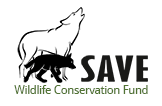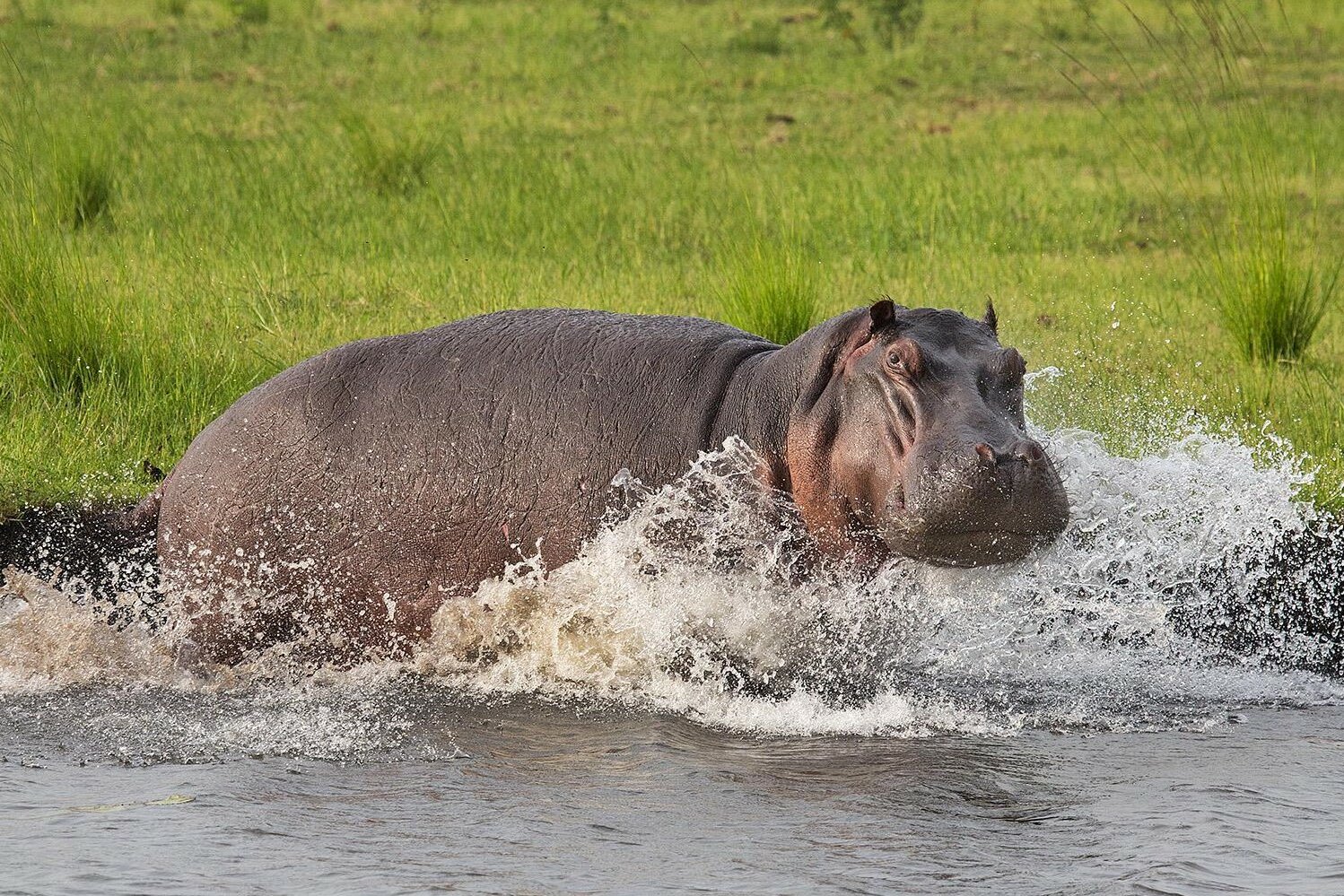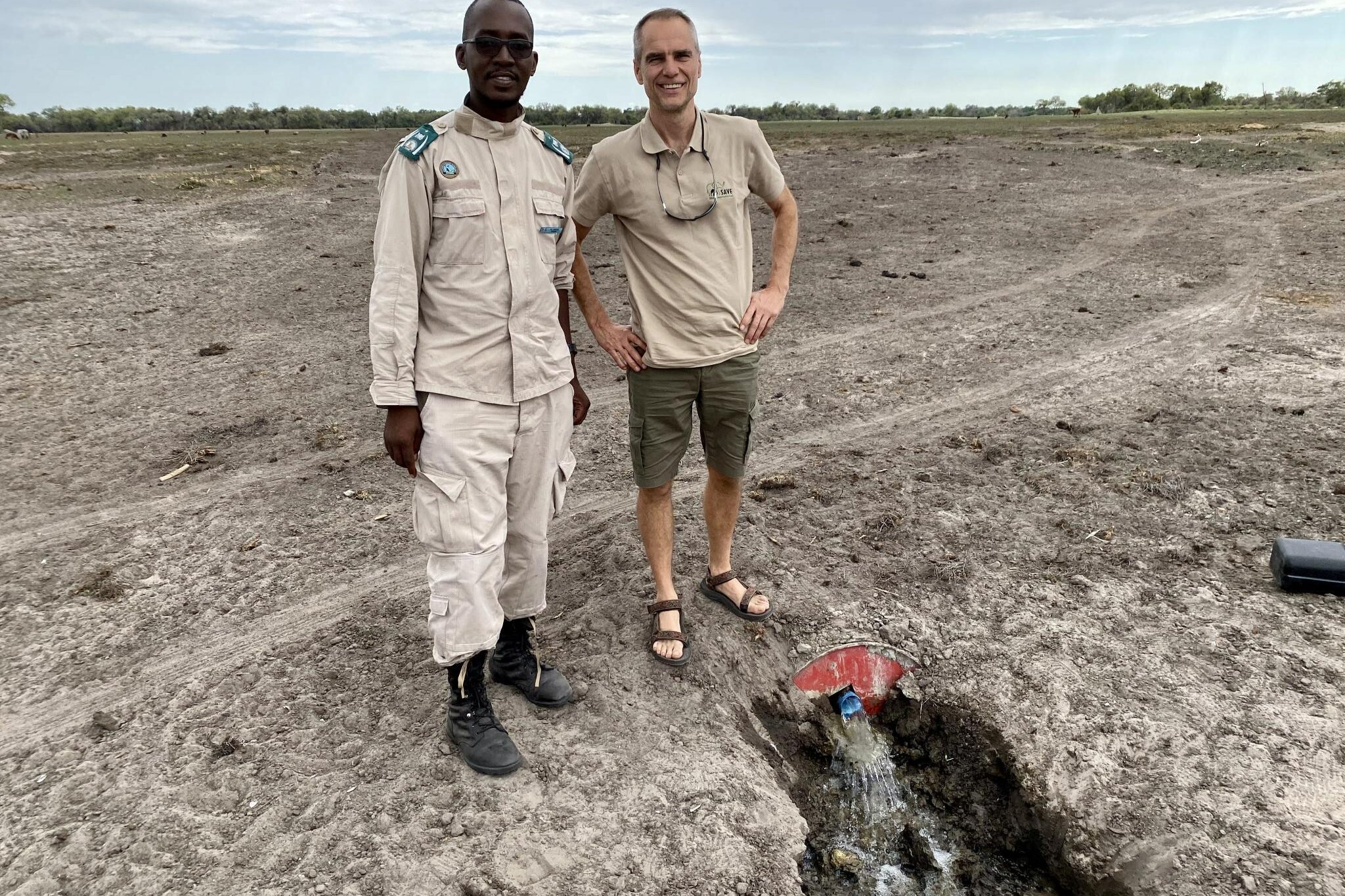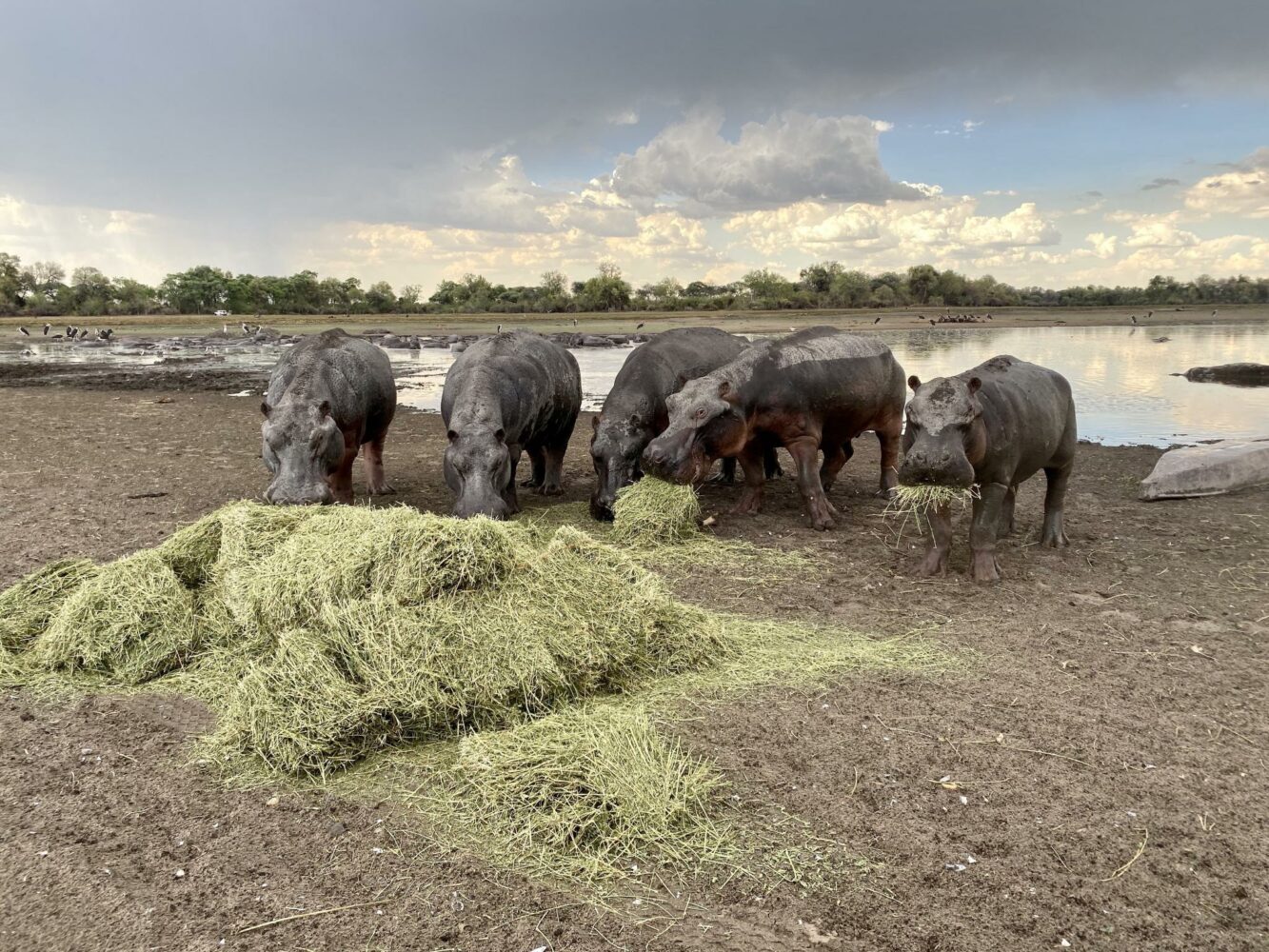Hippo PROTECTION
Hippo PROTECTION
Hippos population is decreasing
The hippopotamuses are one of Africa’s most emblematic wild animals. Unfortunately, poaching and habitat destruction have led to hippos being classified as endangered on the International Red List (IUCN). Additionally, climate change causes long periods of draught that are deadly threat to hippos.
Today, hippos are only found in the south of Sahara. There, approximately 130,000 large hippos and around 2,500 pygmy hippos live in the wild.
Provision of water and food for hippos
In 2020, the SAVE Fund rescued 168 hippos from a drying lagoon near Nxaraga. In cooperation with the Department of Wildlife and National Parks and local companies, the SAVE Fund filled waterholes used by hippos. Every 10 hours, a solar-powered pump delivered 46,000 liters of water to the water point. Hippos were also supplied with 30-50 kg of hay bales a day per individual. The animals were receiving water and food until their migration in summer 2020. The equipment used for water supply can be used by the Nxaraga village community for future projects.
The hippos rescue has been positively welcomed by the local population – even though they themselves suffer from the effects of drought that threaten their crops and livestock. The willingness to help wild animals shows that the local population is aware of the importance of the natural environment for their lives and that, through targeted measures, we can protect nature. Such awareness is crucial for the effective protection of wildlife.
This project is an important step forward for us: providing food is a short-term solution, however it is a symbol of our effectiveness and our actions.
Species conservation through education and development work – this is the approach on which all our projects are based. We work hand in hand with the people in the affected regions and enable income-generating measures where they are needed. With our education projects, we build bridges to future generations – so that nature and species conservation once again become a natural part of life.



